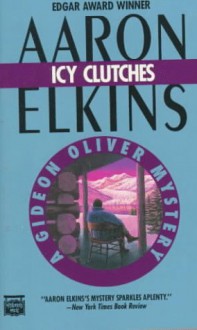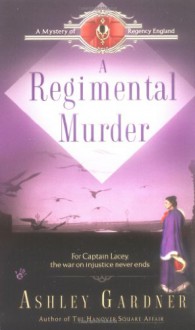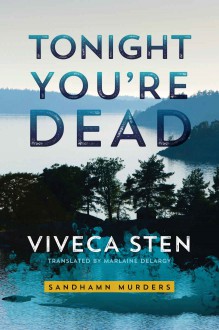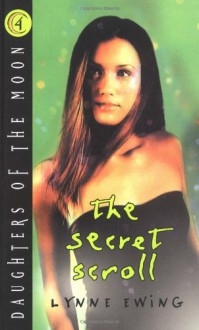
After encountering the charming story of The Celebrated Cases of Judge Dee, I went on a quest for more gong'an crime novels. Sticking various combinations of "Chinese mystery," "Judge Dee", and "gong'an" crime into my library's search tool, it churned up this story. I was slightly surprised, upon examination, to discover that the story is in fact a Japanese, not Chinese, crime story. What can I say? My library system moves in a mysterious way, its wonders to perform.
As I began to read, my library system's deeper purposes were made plain, for it became quite clear that the author was heavily inspired by Judge Dee and Van der Gulk's continuations of his tale.
The story begins when Sugawara Akitada, an earnest young government official, is sent to the province of Kazusa to investigate the apparent disappearance of tax payments. It's effectively a political-suicide mission: there is really no way that Akitada can get out of this well. Either he arrests the governor, thereby offending a bunch of important people, or, more likely, fails to find the perpetrator, in which case he has also failed the government. Along the way, Akitada and his elderly and straightlaced servant Seimei are waylaid by the talented brigand Tora. Reminiscent of the Judge Dee's treatment of various "brothers of the green wood," Akitada promptly hires Tora as his bodyguard, instantly earning the man's loyalty. When they finally arrive in Kazusa, however, they discover that missing money is far from the greatest of their concerns: not only has a government official been murdered, a group of monks are acting suspiciously, and love is in the air.
The story was cute and fun, and while I know essentially nothing about the period, it was likely more accurate than most of the mysteries I've read. The mystery itself is rather abysmal--you'll guess the villains from the second you meet them--but then, this was equally true in the case of Judge Dee. I'm actually wondering if this was on purpose: the influence of the Judge Dee novels is very apparent, even in the tactics and characters themselves, and Judge Dee itself was an instance of Gong'an crime. As far as I understand it, Gong'an crime tends to utilize an inverted mystery structure, where you know from the beginning whodunit and the whole book is about the howdunit and the catchemwhodunit. Unfortunately, unlike Judge Dee's rather entertaining performance, Akitada tends towards the TSTL style of "investigation," and his obtuseness tended to get on my nerves.
My second complaint is rather more serious. One of my ultimate pet peeves in historical fiction is the imposition of our morality and our social code on the story, and, more specifically, having the hero defy social conventions of his time period to uphold our ideals of tolerance and a classless society. Akitada repeatedly breaks social conventions--allowing a servant to talk back to him, meeting with "low" people, treating his social inferiors as equals--and, more problematically, the narrator presents these actions as evidence of his good nature, righteousness, and worthiness. We also have a female wrestler who wears men's clothes (because I'm sure that would totally be approved by the society and would turn up naturally in a story of the time period)[1], a disrespectful thief with a heart of gold, multiple improper romantic meetings between men and women in which one character comments that "we have made our own rules," and more. Every time these instances of impropriety occurred, I was thrown out of the narrative, because the narrator's approval of the protagonist's "modern" attitudes clearly separated the story and characters from their proper time.
Part of writing good historical fiction is to attempt to adopt the beliefs and social conventions of the time period. These conventions can be bent, but they should not be smashed, and every time they are stretched, the character should go through agonies or have a narrator who does not present them with wholesale approval.[2] Personally, I find first person narrators to provide the most satisfactory form of historical fiction because it neatly escapes the thorny issue of narrator complicity in viewpoints that we now consider immoral. Unfortunately, Parker did not take this route. At the same time, she clearly put a great deal of work into researching the period, and I appreciated the small details she added throughout to shed light onto this fascinating time period.
Overall, I thought the story was entertaining, and between the story and my forays into Wikipedia to try to understand the social structures of the time, I think I learned something about the Heian period. The structure here, including a sub-mystery where a man dies under bizarre circumstances and his seductive wife protests innocence, are clearly homages to Judge Dee. The characters are gentle and inoffensive, and it was enjoyable to see a female character taking a prominent role. While I probably won't be hunting up the next book in the series, I enjoyed Akitada's escapades and can recommend them to anyone looking for a lighthearted jaunt into eleventh century Japan.
[1]While women of the Heian period evidently had more freedoms and powers than one might expect, and there were several instances of female warriors, it seems to me as though Onna-bugeisha and Onna-musha were both very unusual and typically of the upper classes. I don't see a female wrestler as being accepted so casually, and given her lower-class stature, her role is problematic at best.
[2]For example, I find it inexcusable when the various Austen copycats have class-blind protagonists--apparently they failed to realize no-one ever breaks social class structure with impunity in Austen's books. If you want to try an Austen pastiche and you want to break class structure, your characters had better darned well be conflicted about it.


 Log in with Facebook
Log in with Facebook 























